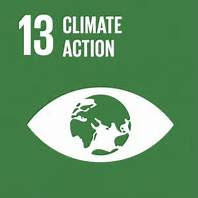Climate Tracker:
Deadline: 30 September 2017
The Climate Tracker is inviting trackers from everywhere in the world for its fully funded fellowship to COP 23 in Bonn, Germany.
Around the world, Renewable energy is
driving bigger changes than we have seen in generations, and the
pressure is on for countries to take their transitions even further.
According to Climate Tracker, the message is clear now, Trump is
isolated and it doesn’t matter where you’re from; it’s time to take your
commitments to Climate Change seriously.
If you want to be part of this
incredible transition, it’s time to raise your voice, and join the
opportunity for a FULLY FUNDED trip to COP23, in Germany in November.
Topics
Climate Tracker will have 3 publishing
windows, during which applicants will have to write at least 1 article
about a specific topic. They will have to write at least one article on
each topic to be eligible for our prizes. That means at least 3 articles
in total:
- Topic 1 (1July – 31 July): The Clean Energy Revolution
- During the first publishing window, Climate Tracker encourages applicants to: (1) describe the importance of, and the opportunities for, clean energy in their country or region; (2) explain how the fossil fuel industry is having negative impacts on climate change, endangering millions of people, and (3) call out for a higher ambition in executing the well-underway clean energy revolution.
- Topic 2 (1Aug – 31 Aug): Supporting Climate Finance
- To ensure the wellbeing of future societies and to achieve the climate goals that have been set, we have to invest in the future. It’s time to take up responsibility and make sure where our climate money is going.
- Topic 3 (1 Sep – 30 Sept): Climate and health
- Climate change is impacting each and every one of us on a very personal level that many of us don’t even realize, namely our health. With climate action, we have the chance to save millions of lives.
- To get started on the first topic, and get some inspiration on how and what to write, Climate Tracker will be sending applicants a toolkit as soon as they sign up to the competition.
- By writing on these topics, applicants eligible to win a spot on our team at COP23 in Bonn. Climate Tracker will be covering their flight, accommodation, entry into the COP and guidance by the Climate Tracker team. Other prices to win include online writing fellowships, for which they receive a stipend and personal guidance from Climate Tracker to write about climate change issues in their region.
Eligibility Criteria
- Journalists and writers who are interested to cover climate change issues and the UN climate change negotiations are eligible to apply.
- The call is open to all countries, to people aged 18-30 years old.
- Those above 30 and have journalistic experience may still apply but priority will be given to those who are 30 and below.
How to Apply
Applicants can apply online via given website.
For more information, visit:
http://app.climatetracker.org/competition/52aa87a3-3ed2-4392-8c50-e5473a9b36a2/information
http://app.climatetracker.org/competition/52aa87a3-3ed2-4392-8c50-e5473a9b36a2/information




